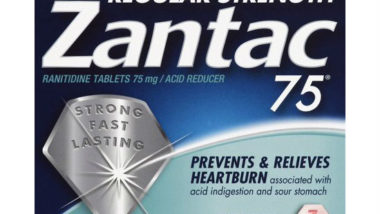 New research indicates a link between stomach cancer and PPI drugs, a group of commonly used antacid medications. These drugs, including Nexium, are known as proton pump inhibitors or PPIs.
New research indicates a link between stomach cancer and PPI drugs, a group of commonly used antacid medications. These drugs, including Nexium, are known as proton pump inhibitors or PPIs.
What are PPIs?
PPIs are some of the most widely sold drugs in the world, and are frequently used to treat acid reflux, heartburn and ulcers. One of the most popular PPI drugs is Nexium, also known as the “purple pill.”
According to Nexium’s website, Nexium and other PPIs work by turning off acid pumps in the stomach cells that produce acid to break down food. This acid reduction helps to eliminate acid reflux and heartburn.
A Link Between Kidney Failure and Stomach Cancer and PPI Drugs?
In a report published by Gut in October 2017, new evidence from a study of PPIs seems to point towards a correlation between stomach cancer and PPI drugs. It also indicates a link to other issues including kidney failure.
The study included over 63,000 adults who were diagnosed with a Helicobacter pylori infection. Helicobacter pylori is a type of bacteria that can cause acid reflux symptoms and is often treated with PPIs.
The study followed the subjects for an average of 7.5 years and kept track of which subjects continued to use PPIs to treat their symptoms, and which subjects used a different treatment method, H2 blockers. By the end of the study, 153 subjects had developed stomach cancer.
The research found that the subjects who frequently used PPIs were 2.44 times more likely to get cancer than those who took H2 blockers for acid reflux control.
According to the study, this risk increases with prolonged use. It indicates that if PPIs are used daily for more than 3 years, the risk of stomach cancer increases by 8 times.
Prior to this study, Nexium was already known to have potentially severe side effects. Nexium’s website lists many possible side effects of long term use of the drug. These side effects include the possibility of developing bone fractures or stomach growths, as well as lupus. The most common side effects of Nexium include headache, diarrhea, nausea, abdominal pain, gas, constipation and dry mouth.
PPI Drug Lawsuits
Several PPI lawsuits have been filed against the pharmaceutical companies manufacturing and selling PPI drugs, claiming that the antacid drugs have caused patients to suffer a variety of health issues.
The issues cited in these lawsuits include stomach cancer and kidney failure, but also claim that the drugs may cause low magnesium levels, chronic kidney problems, acute interstitial nephritis, strokes, dementia, and heart attacks. Some of the drugs cited in these lawsuits include Nexium, Prilosec, and Prevacid.
If you have been prescribed Nexium or another PPI drug for the treatment of acid reflux, heartburn, or ulcers, and have suffered from stomach cancer or kidney failure, you may qualify to join a stomach cancer and PPI drugs investigation at no cost to you.
ATTORNEY ADVERTISING
Top Class Actions is a Proud Member of the American Bar Association
LEGAL INFORMATION IS NOT LEGAL ADVICE
Top Class Actions Legal Statement
©2008 – 2026 Top Class Actions® LLC
Various Trademarks held by their respective owners
This website is not intended for viewing or usage by European Union citizens.
E-mail any problems with this form to:
[email protected].
Oops! We could not locate your form.












